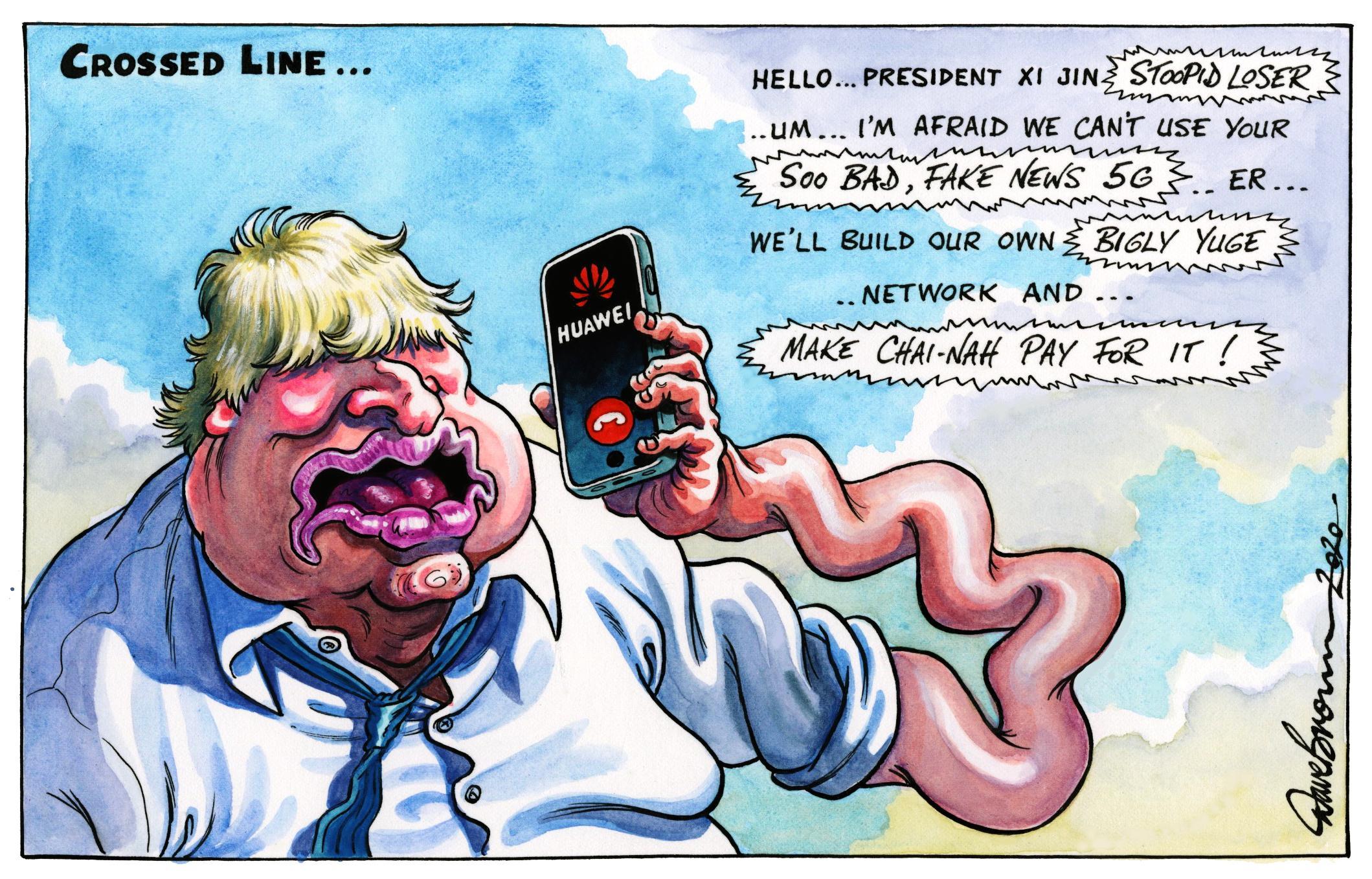As we remove Huawei’s 5G telecoms masts, we can wave goodbye to the ‘golden age’ of Chinese-British relations
Editorial: If we do not wish the new cold war with China to escalate – and America is doing most of the escalating right now – there needs to be some sort of rapprochement

Rather than being burnt down by misguided conspiracy theorists, Huawei’s 5G telecoms masts are now to be removed on the orders of HM Government. Indeed, all of the Huawei kit already fitted to the 5G network – officially designated “non-core” components by the British government – is to be physically removed by law by 2027. There will be no new Huawei equipment used on the 5G rollout, which will be late and more expensive as a result. The old policy devised by Boris Johnson limiting Huawei involvement to 35 per cent of non-sensitive equipment has been scrapped; the ban is complete, as is the latest British government U-turn.
There’s no doubt that Huawei is controlled by the Chinese state, which owns it, and therefore the Chinese Communist Party. There may be a potential for breaches of data privacy and national security concerns. China is a more assertive superpower these days. There is similarly no shortage of objections to the regime, not least its treatment of Uighur Muslims, dissidents in Hong Kong and routine human rights abuses across its territories.
Yet none of these were explicitly cited by Oliver Dowden, the minister responsible for digital, when he announced the boycott. Instead the decision was presented as a purely technical matter, made on the recommendation of a quango, the National Cyber Security Centre. The argument runs that since America slapped sanctions on China in May, Huawei will no longer have access to US software or hardware, and therefore will make UK oversight of Huawei products significantly more difficult, if not impossible.
This is all very well, but it is perfectly possible for Huawei, the largest telecoms equipment supplier in the world, to substitute its own tech for the American version. Nowhere has there been any actual evidence produced that demonstrates how Huawei would be able to access sensitive private data or state secrets. Nor is it necessarily clear that China would be so aggressive as to do so, even with the continuing row over Hong Kong and the Sino-British treaty. There is an assumption that China is necessarily a hostile power. That might be true, but before Britain risks mobile phone outages, jeopardises longer-term trade and loses what influence it has over Hong Kong, the Johnson government has an obligation to make a case for the ban based on facts and evidence.
Mr Johnson claims not to be a Sinophobe, but many in his own party seem unduly paranoid about Beijing. Indeed, it is the prospect of an embarrassing parliamentary defeat that is the real reason for this U-turn, given that the official opposition is likely to find reasons to vote against the government. Not for the first time, Mr Johnson finds himself being pushed around by his rebellious backbenches. The next question will be whether the UK should continue to entrust its nuclear power programme to Chinese businesses. That would be even more costly to untangle (and meet Britain’s ambitious CO2 emissions targets).
It seems a long time since the then prime minister, a figure almost lost to history named David Cameron, stood President Xi Jinping a pint at the “local” near Chequers. (The Plough at Cadsden has since been acquired by a Chinese investor, ironically enough.) No longer do British ministers talk about a new “golden age” for Chinese-British relations, and an exciting post-Brexit free trade deal with the world’s second largest economy seems to have been postponed indefinitely. Instead, Britain has found itself edging towards a cold war with China, but with little hard detailed evidence of the precise threats to national security.
The Chinese are now subject of intense suspicion in official circles, and especially within the Conservative Party (and Labour and the other opposition parties share the scepticism). The very real threats to freedom in Hong Kong have given some justification to those suspicions; but it has never been shown that any particular line of coding of any particular smartphone chip is Xi’s secret weapon.
If we do not wish the new cold war with China to escalate – and America is doing most of the escalating right now – there needs to be a calmer approach and some sort of rapprochement. Britain, a medium-sized market for Chinese commerce with an ex-imperial inferiority complex, is too small to bully China over Hong Kong or anything else. Frankly, even Trump’s America isn’t powerful enough to do so. We don’t need to pretend this is a golden era to get into better diplomatic terms with this superpower, for the good of all concerned, including the many oppressed in China itself.
Join our commenting forum
Join thought-provoking conversations, follow other Independent readers and see their replies
Comments
Bookmark popover
Removed from bookmarks